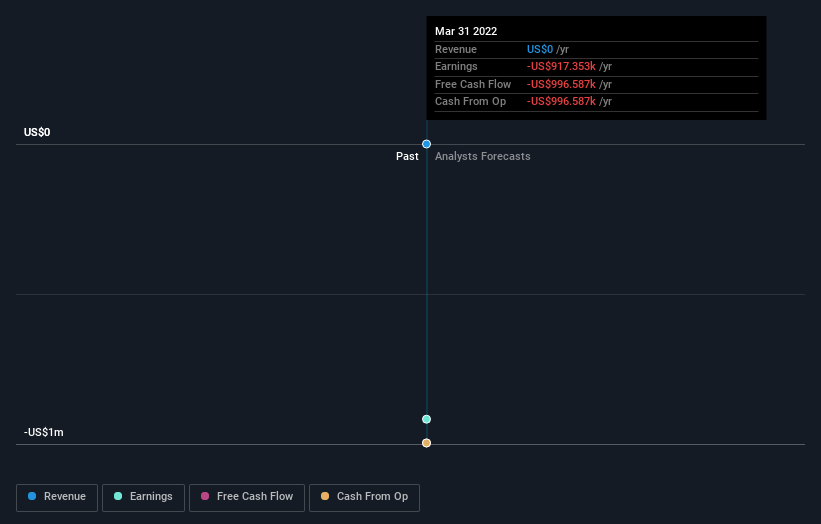What Kind Of Shareholders Hold The Majority In Finnovate Acquisition Corp.'s (NASDAQ:FNVT) Shares?
A look at the shareholders of Finnovate Acquisition Corp. (NASDAQ:FNVT) can tell us which group is most powerful. Institutions will often hold stock in bigger companies, and we expect to see insiders owning a noticeable percentage of the smaller ones. Companies that have been privatized tend to have low insider ownership.
Finnovate Acquisition is not a large company by global standards. It has a market capitalization of US$210m, which means it wouldn't have the attention of many institutional investors. In the chart below, we can see that institutions are noticeable on the share registry. Let's take a closer look to see what the different types of shareholders can tell us about Finnovate Acquisition.
Check out our latest analysis for Finnovate Acquisition
What Does The Institutional Ownership Tell Us About Finnovate Acquisition?
Many institutions measure their performance against an index that approximates the local market. So they usually pay more attention to companies that are included in major indices.
As you can see, institutional investors have a fair amount of stake in Finnovate Acquisition. This suggests some credibility amongst professional investors. But we can't rely on that fact alone since institutions make bad investments sometimes, just like everyone does. It is not uncommon to see a big share price drop if two large institutional investors try to sell out of a stock at the same time. So it is worth checking the past earnings trajectory of Finnovate Acquisition, (below). Of course, keep in mind that there are other factors to consider, too.
It looks like hedge funds own 6.2% of Finnovate Acquisition shares. That catches my attention because hedge funds sometimes try to influence management, or bring about changes that will create near term value for shareholders. Finnovate Sponsor L.P. is currently the largest shareholder, with 20% of shares outstanding. For context, the second largest shareholder holds about 6.2% of the shares outstanding, followed by an ownership of 3.9% by the third-largest shareholder.
After doing some more digging, we found that the top 13 have the combined ownership of 51% in the company, suggesting that no single shareholder has significant control over the company.
While it makes sense to study institutional ownership data for a company, it also makes sense to study analyst sentiments to know which way the wind is blowing. We're not picking up on any analyst coverage of the stock at the moment, so the company is unlikely to be widely held.
Insider Ownership Of Finnovate Acquisition
The definition of company insiders can be subjective and does vary between jurisdictions. Our data reflects individual insiders, capturing board members at the very least. Management ultimately answers to the board. However, it is not uncommon for managers to be executive board members, especially if they are a founder or the CEO.
Insider ownership is positive when it signals leadership are thinking like the true owners of the company. However, high insider ownership can also give immense power to a small group within the company. This can be negative in some circumstances.
Our data suggests that insiders own under 1% of Finnovate Acquisition Corp. in their own names. However, it's possible that insiders might have an indirect interest through a more complex structure. It has a market capitalization of just US$210m, and the board has only US$746k worth of shares in their own names. We generally like to see a board more invested. However it might be worth checking if those insiders have been buying.
General Public Ownership
The general public-- including retail investors -- own 28% stake in the company, and hence can't easily be ignored. While this group can't necessarily call the shots, it can certainly have a real influence on how the company is run.
Private Company Ownership
We can see that Private Companies own 20%, of the shares on issue. Private companies may be related parties. Sometimes insiders have an interest in a public company through a holding in a private company, rather than in their own capacity as an individual. While it's hard to draw any broad stroke conclusions, it is worth noting as an area for further research.
Next Steps:
It's always worth thinking about the different groups who own shares in a company. But to understand Finnovate Acquisition better, we need to consider many other factors. To that end, you should learn about the 3 warning signs we've spotted with Finnovate Acquisition (including 2 which are potentially serious) .
Of course this may not be the best stock to buy. So take a peek at this free free list of interesting companies.
NB: Figures in this article are calculated using data from the last twelve months, which refer to the 12-month period ending on the last date of the month the financial statement is dated. This may not be consistent with full year annual report figures.
Have feedback on this article? Concerned about the content? Get in touch with us directly. Alternatively, email editorial-team (at) simplywallst.com.
This article by Simply Wall St is general in nature. We provide commentary based on historical data and analyst forecasts only using an unbiased methodology and our articles are not intended to be financial advice. It does not constitute a recommendation to buy or sell any stock, and does not take account of your objectives, or your financial situation. We aim to bring you long-term focused analysis driven by fundamental data. Note that our analysis may not factor in the latest price-sensitive company announcements or qualitative material. Simply Wall St has no position in any stocks mentioned.

 Yahoo Finance
Yahoo Finance 

